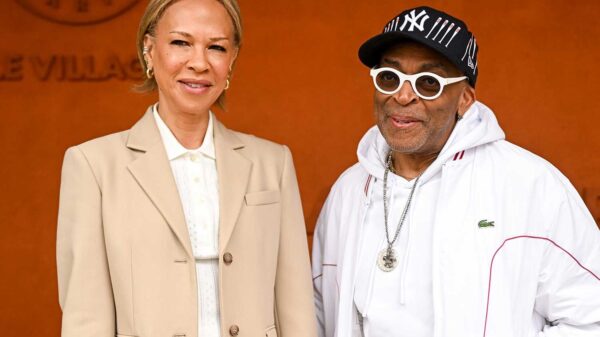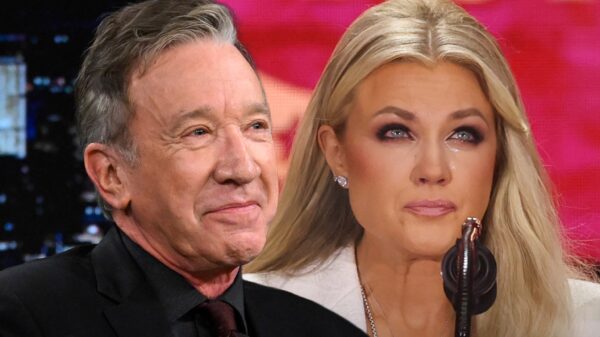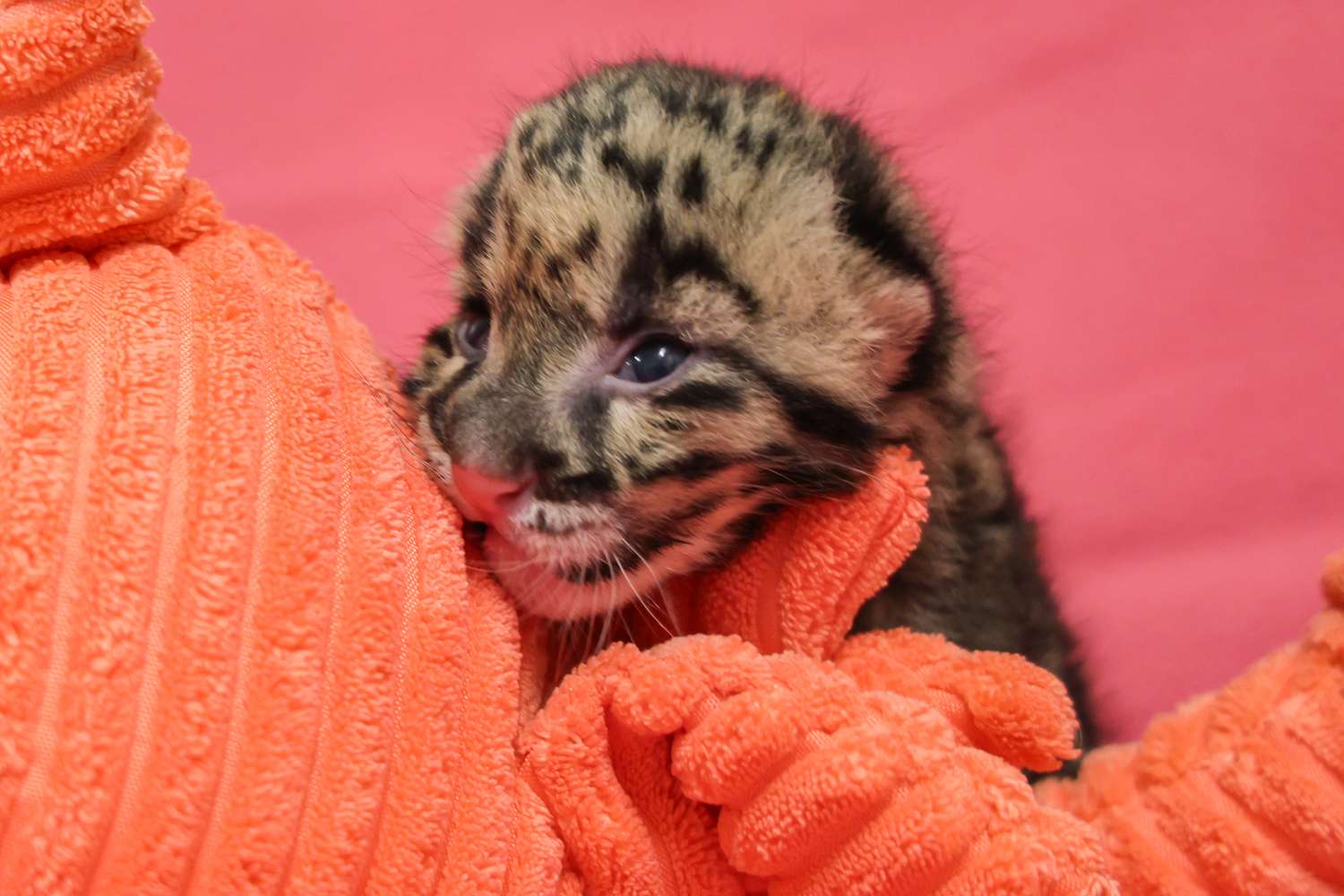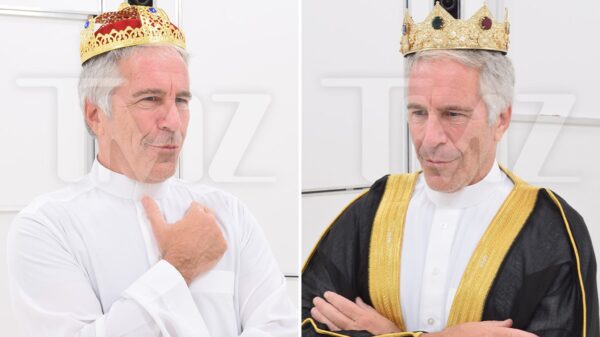NEED TO KNOW
- A rare clouded leopard cub, weighing just 1 lb., was born to parents Jewels and Bruce at the Nashville Zoo on July 18
- The zoo said the female cub will be hand-reared as “her survival is critical” due to the “steep decline” in the species’ population
- The zoo also announced that it recently welcomed a 10-week-old brother-sister clouded leopard pair from the Tanganyika Wildlife Park in Kansas
The Nashville Zoo is celebrating a special new addition to its family.
A rare clouded leopard cub was born on July 18, the zoo announced on Instagram on Aug 4. The female cub is the 45th cub born at the zoo since 1991. She is “currently the size of a teddy bear,” weighing just 1 lb.
Due to the vulnerable status of the clouded leopard species, the zoo said the cub will be hand-reared.
“Since the clouded leopard population is in steep decline, her survival is critical. Following the AZA [Association of Zoos & Aquariums] Species Survival Plan (SSP)’s recommendation, we’ve elected to hand-rear her,” the zoo said, inviting visitors to “watch her grow up through the windows” of its HCA Healthcare Veterinary Center.
The zoo explained in a press release that hand-rearing “prevents parental predation or neglect, which is common for clouded leopards, and allows this normally nervous species to become acclimated to the sights and sounds of human interaction typical in an exhibit environment.”
“Hand-raising also allows the zoo to pair cubs at an early age,” the zoo added. “Our research with breeding clouded leopards has revealed that pairing at an early age significantly reduces aggression and allows for more successful breeding pairs.”
The Aug. 4 Instagram post featured a series of photos of the newborn cub exploring her habitat and playing with toys.
She is the third offspring of parents Jewels and Bruce, the zoo said. Jewels gave birth to a male and female cub in June 2022.
The zoo also announced in its post that it recently welcomed a 10-week-old brother-sister clouded leopard pair from the Tanganyika Wildlife Park in Kansas, per the AZA’s SSP recommendation.
“Once the [new] cub is of age, she will be introduced to the brother-sister pair, helping them socialize,” the zoo said, adding, “Every cub counts when it comes to saving this vulnerable species.”
Never miss a story — sign up for PEOPLE’s free daily newsletter to stay up-to-date on the best of what PEOPLE has to offer, from celebrity news to compelling human interest stories.
On Friday, Aug. 8, the zoo shared a sweet video on Instagram showing two clouded leopard cubs jumping around and playing together. The clip was captioned, “If you need us, we’ll be watching this all day. 😻.”
The zoo estimates that around 10,000 clouded leopards remain in the wild. The rapid population decline of the species, which is native to the tropical lowlands of Southeast Asia, is due to poaching, pet trade and deforestation.
The Tennessee facility, which has a total of 14 clouded leopards in its care, is a leader in clouded leopard conservation and breeding efforts.
Since 2000, the zoo has partnered with zoos around the world to develop collaborative breeding programs and field monitoring projects for clouded leopards in Thailand as part of the Clouded Leopard Consortium.
Clouded leopards are difficult to breed in captivity as they “are sensitive to auditory and visual disturbances, increasing the stress levels during captive breeding programs,” the zoo said, noting that it works with artificial insemination specialists to “increase the size and diversity” of the captive-bred population.
The zoo’s latest clouded leopard cub birth came more than three months after a female cub at the facility died due to intestinal bleeding on April 4.
Following her Feb. 25 birth, she captured national media attention and helped raise thousands of dollars for conservation efforts via a contest to select her name.
“This cub represented a proud achievement for us and a hopeful future for her species,” Nashville President and CEO Rick Schwartz said after her death. “She captured the hearts of millions of people, and we are absolutely devastated.”
Read the full article here

















